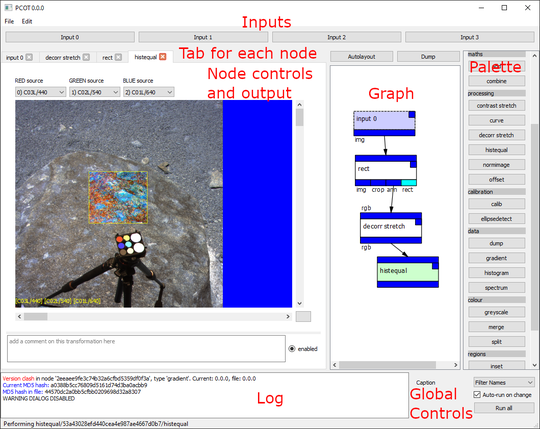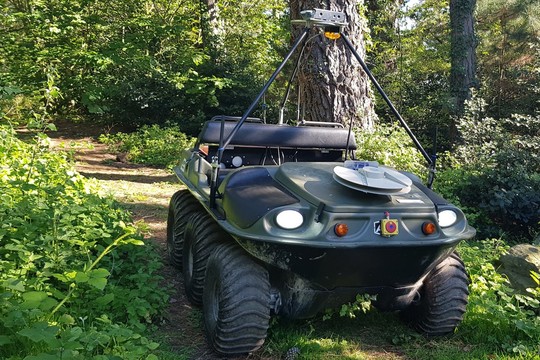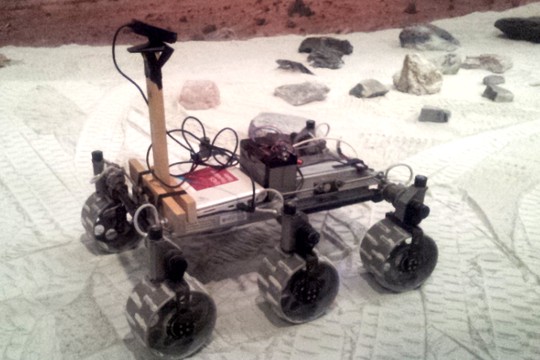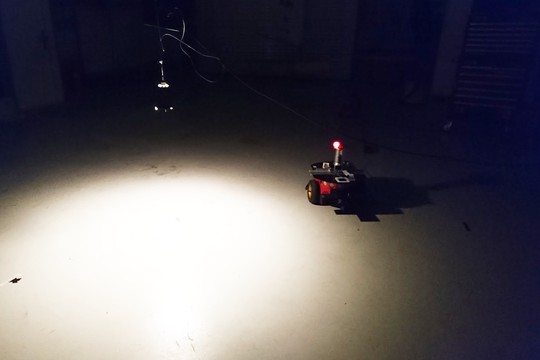Biography
Dr James Finnis is a lecturer in Computer Science at Aberystwyth University. His research interests include artificial neuroendocrine and neuromodulatory systems, modulatory neural network architectures, intelligent robotics (particularly autonomous off-road driving), and multispectral image processing.
He is also working as part of the Aberystwyth ExoMars team, writing software to help scientists and engineers analyse data from the Rosalind Franklin rover.
He spent over 20 years working in the games industry before moving into academia.
My office is B52 on the ground floor of the Department of Computer Science, opposite the drinking fountain next to the lobby. I am available for a chat at the following times. If you would like to meet outside these hours, please email me and I'll see what I can do.
- 11:10 until 12:00 on Mondays
- 11:10 until 12:00 on Tuesdays
Note that these hours may change due to timetable changes and workload (they could go down during heavy marking periods).
Interests
- Artificial Intelligence
- Artificial Endocrine Systems
- Modulatory Neural Networks
- Multispectral Image Processing
- Autonomous Off-road Driving
Education
-
PhD in Computer Science, 2020
Aberystwyth University
-
BSc in Computer Science, 2014
Aberystwyth University
Teaching
Supplementary information for students.
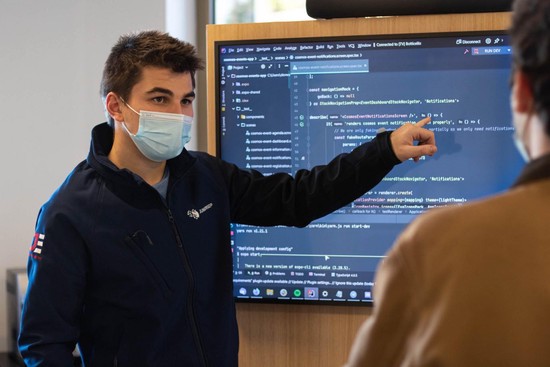
Demonstrators
Presentation and notes on good demonstrator practice

CS21120
Algorithm Design and Data Structures

CS12020
Introduction to Programming
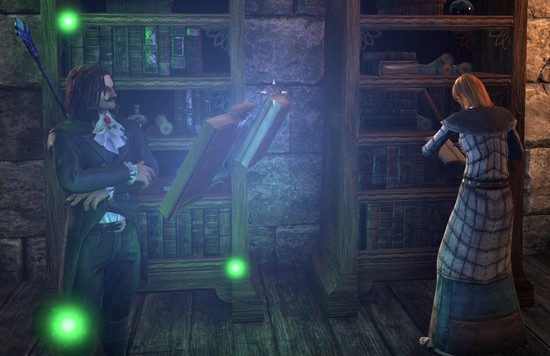
CS18120
Study Skills for Computer Science

CS39440
Major Project
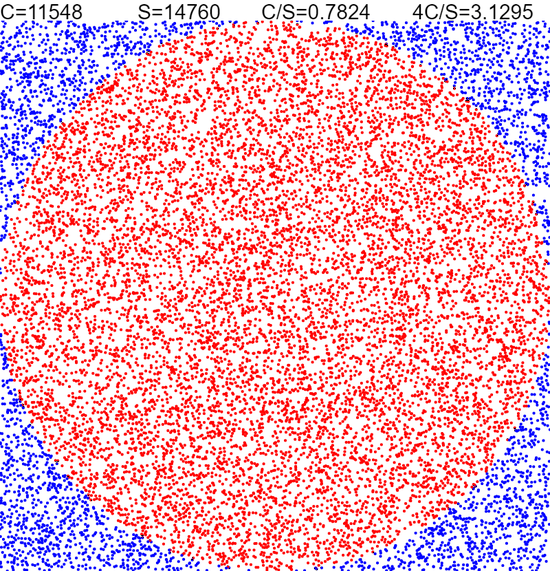
Monte Carlo simulation example
A demo of a Monte Carlo method for calculating $\pi$.
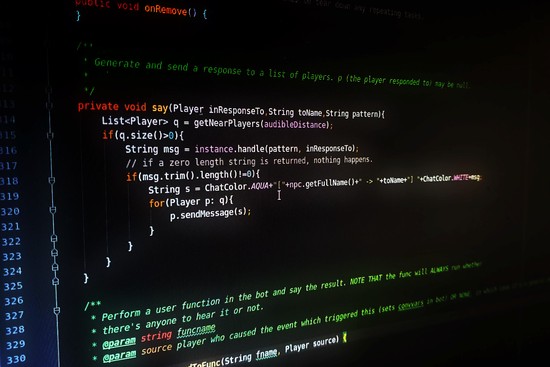
CS12320
Programming Using an Object-Oriented Language
Research
PCOT
UESMANN
Projects
Things I’ve built - some for work, some for fun.
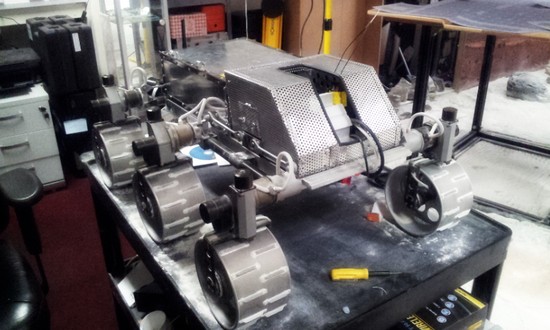
Blodwen
A tiny Mars rover.

Cantre’r Gwaelod
A piece of generative music, changing in real time with the weather and the tide.
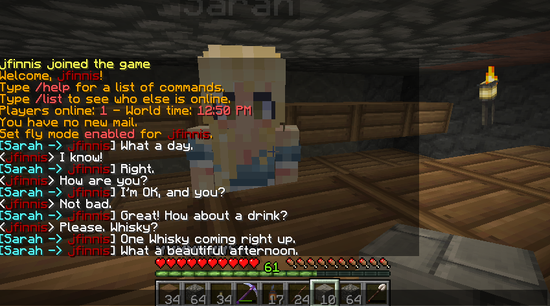
ChatCitizen
Making friends in Minecraft

Angort
A concatenative language with first-class functions and full lexical closure.
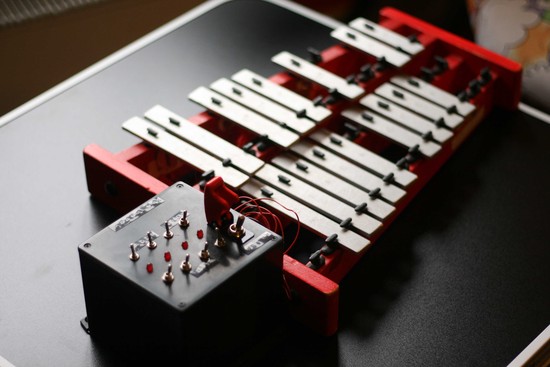
Instruments
A collection of odd musical instruments.
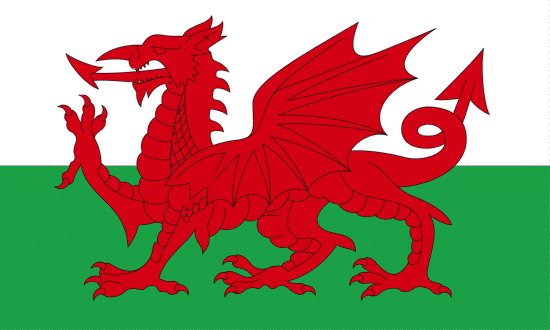
Welsh language cheat sheet
How to pronounce Welsh on a single A4 page
Featured Publications
PCOT: An open-source toolkit for multispectral image processing
PCOT is a Python program and library which allows users to manipulate multispectral images and associated data. It is in active development in support of the ExoMars mission and intended to be used on data from the Rosalind Franklin rover, but it has much greater potential for use beyond this specific context. PCOT operates on a graph model - the data are processed through a set of nodes which manipulate it in various ways (e.g. add regions of interest, perform maths, splice images together, merge image channels, plot spectra). A PCOT document describes this graph, and we intend that documents are distributed along with the data they generate to help reproducibility. PCOT is open-source, and contributions can be made to the core software, as plugins, or by using PCOT as a library in your own code.
Reflections on Imagination of Future and AI
A humanities-led discussion on generative AI and imagination.
Homeostatic Robot Control Using Simple Neuromodulatory Techniques
A look at how well UESMANN performs in a homeostatic robot problem.
On computable numbers with an application to the AlanTuringproblem
A discussion of how “computable” the Law is, as a formal system, with reference to Turing's own life and times. My contribution here is a description of Turing's seminal work on the decision problem, written for the layperson.
UESMANN: A feed-forward network capable of learning multiple functions
A brief introduction to the UESMANN network which is further explored in my thesis.
Recent Publications
PCOT: An open-source toolkit for multispectral image processing
Reflections on Imagination of Future and AI
Neuromodulatory Supervised Learning
Homeostatic Robot Control Using Simple Neuromodulatory Techniques
On computable numbers with an application to the AlanTuringproblem
Skills
C/C++/Java
Several decades’ experience
ROS/Robotics
Two or three extensive projects
Computer Vision
Ongoing research into off-road autonomous driving using statistical models
R
Heavily used to analyse data and create graphics in my PhD work and elsewhere
Python
Several extensive projects including my own media management system
Neural Nets
The subject of my PhD thesis, although a rather unusual subset of neural nets (and not deep learning)
3D Graphics and Games
Several decades of console and PC game programming
Embedded systems
Some fairly hefty projects, including a Mars rover with 10 embedded ATMega328 controllers driving 18 motors, an electronic oboe, and a dataglove!
Experience
Lecturer
Aberystwyth University
Responsibilities include:
- Teaching first-year programming skills (Arduino C/C++, Java)
- Setting and marking Second year assignment (Java)
- First year personal and professional development tuition
Research Assistant
Aberystwyth University
Postgraduate study
Aberystwyth University
Research Assistant (Industrial Year)
Aberystwyth University
Working on the EADS-funded ENDOVER project, developing a possible power management option for the ExoMars rover based on an artificial endocrine system.
Testing the viability of robot surveys of Scottish lochs for locating submerged logs for dendrochronological study. Part of the Scot2K project with Dr. Mark Neal in association with Richard Bates at St. Andrews. My responsibility was the development of a monitoring software suite in C++ and Python.
Lead Programmer / Technical Director
Broadsword Interactive
Leading the development team in several PC, PS2 and Wii games, including Dance Factory, Dance:UK and Paris-Dakar Rally. Responsibilities included:
- Team management
- Design and development of several 3D engines for PC, Wii and PS2.
- Development of rapid level prototyping systems
- Development of gameplay code
Disclaimer
The information provided on this and other pages by me, James Finnis (jcf12@aber.ac.uk), is under my own personal responsibility and not that of Aberystwyth University. Similarly, any opinions expressed are my own and are in no way to be taken as those of Aberystwyth University.
